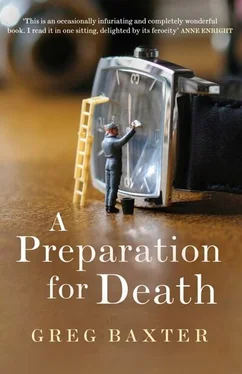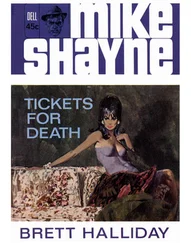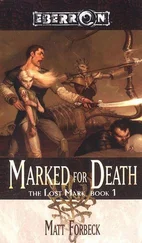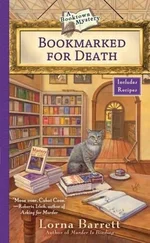My memories inform my experience of Milton. The poem also alters my memories. They are studies of each other. They fill each other with mischief, and why not? I begin at a precipice — a memory — and fling myself into the unknown. I like to travel to my mind’s exotic destinations, not the places that are easy to reach. I am only happy when I look back and can barely see where I began. The idea of rebirth repulses me; so does remedy.
It is August now. The writing moves slowly; so does the reading. It has not stopped raining for weeks. Manholes are vomiting water back to the streets — they gurgle and spew and overflow — and inundate crossroads and bus lanes. Gardaí in fluorescent yellow jumpsuits direct traffic; sometimes they shake their heads and tell drivers to go back. I think it looks like hell is boiling over, and my appreciation of it confounds my students, who wonder if they’re ever going to get a summer.
I carry the poem everywhere with me, and it fills the days with the weight and wonder of corruption, disobedience, and sex. All my thoughts remind me of Eve greedily engorging; of Satan, all impassioned, watching. I see her naked body, dripping, her breasts, her mouth. Her first thoughts are of gratitude to Satan. Her second thoughts are of secrecy from God.
… Heaven is high,
High, and remote to see from thence distinct
Each thing on Earth; and other care perhaps
May have diverted from continual watch
Our great Forbidder, safe with all his spies
About him …
Next she must decide on Adam. Will she let him partake of full happiness, or
… keep the odds of Knowledge in my power.
Without Copartner? So to add what wants
In Female Sex, the more to draw his Love,
And render me more equal, and perhaps –
A thing not undesirable — sometime
Superior; for, inferior, who is free?
Eve returns to Adam, imbecilic cuckold, who, while Eve was off polluting God’s creation, wove choice flowers in a garland to adorn her tresses. When she asks him to partake of the fruit, he resigns his manhood; he becomes Eve’s subject; he eats,
… not deceived,
But fondly overcome with female charm.
Not deceived? But what are the lies he tells himself, that God would not undo creation, since Satan might rejoice:
… Me first
He ruined, now Mankind; whom will he next?
The earth, predictably, trembles from her entrails. The original sin is complete. Lust follows, and following lust, shame. God, when he comes to admonish the pair, suggests that Adam is pathetic, that he ought to have given only love, not subjection, to a woman
… made of thee,
And for thee, whose perfection far excelled
Hers in all real dignity …
If Adam is a fool and cuckold, then perfection must be flawed. You may argue that Eve was deceived, but the deception is irrelevant. Eve wanted knowledge. Anyway, I can see no virtue in innocence. Poetry makes gods of the imperfect. But man is too afraid to live at the pitch of poetry. He creates hell to suppress his hatred of obedience.
Tomorrow — literally, tomorrow — I will be thirty-four. The number that symbolizes the indomitable victory of Christ over sin and death will pass through me, harmlessly. The city is a paradise of human catastrophe,
Wholesome, and cool, and mild, but with black air
Accompanied; with damps and dreadful gloom –
And I shall stalk it like the figure from my childhood, dragging the invincible state of failure behind me:
… in this we stand or fall;
And some are fallen, to disobedience fallen,
And so from Heaven to deepest Hell; O fall
From what high state of bliss, into what woe!
Since I see no bliss in heaven, let me live in hell, and eat ash out of a tree like that which grew in Paradise, and writhe my jaw on soot and cinder. Grant me strength and daring, that among men the adversarial in me is most conspicuous; make fire blaze from my shoulders; urge me to the middle of the fight, where most men are struggling, and I shall writhe a little, and in writhing, discover.
8. On a Short Stretch of Road in Letterfrack
Art — the stuff a child would call art — does not come multitudinously to me, as they say it does to those who are naturals. I am no good at drawing, or sculpture, or music. I took piano lessons for years and can’t play ‘Chopsticks’. I cannot dance or sing. The only play I ever starred in, I ruined. I do not even consider myself a natural writer. The more I try not to ape other writers, the less myself I sound. I have an above-average mind, a good attitude toward work in isolation, an appetite for authors who humble me, and I am not afraid of my entrails: that’s enough. If I am moved by something, I can put a sentence together nicely; at the very least my style is adequate. I used to measure my writing by its charisma — such was the way in which at that time I loved my fellow-men; according to the standards of other men [Augustine] — but now I judge it by its character.
I get my discipline from contempt, from a natural uneasiness; but my inspiration comes from influence. I search for new books, new authors, to uncover more of my nature — some lost strains my habits and prejudices may suppress. I imitate; I repeat; and new selves emerge. Originality is not forged anew; it is borrowed. Originality is a substance in the universe that we pick at, mine for, and give back. My favourites seethe through me. They boil right out of my eyes and ears and fingertips. If literature is a street brawl between the courageous and the banal — that’s the way I teach it, anyway — I bring the toughest gang I know: the pure killers, the insane.
The person who reminds me most and least of myself is my cousin Fielding, who is a philosopher — though I am not certain that profession exists anymore. He is about five years younger than me. In all respects, we are entirely similar or exactly opposite. This time one year ago, precisely, he visited from Texas to celebrate the completion of the seven-page essay that took him one year to write. We sat, on a weekday night, at a table in a tapas bar in town, discussing the hope of representing the self; we were, in different ways, attempting that. He hated the transparency of influence in my work. He considered it a sign of intellectual impotence. While undertaking his project, he refused to read anything, lest it seep through. I considered that a sign of pure delusion.
In seven pages, he had set out to tell the story of the evolution of a perfect self, from an infant’s first relationship to experience, through all the dehumanizing challenges of life, to a victory for a loving and free consciousness — his answer to the fragmentation and unhappiness in man. He wanted to shine a light for all people. I said I liked it very much, because it seemed to me like a sad and touching autobiography — the story of his failures and his yearnings — and no more. He did not accept this; he had no interest in his own self, but the self. Now that he was finished, he would like to make a film of it — I told him I would probably rather not watch it — and then he planned to begin the great project of his life, which was the story of the evolution of consciousness from the first Homo sapiens to the present day.
We ruined the romantic night of a couple beside us. It may have seemed to them impossible that such a conversation could take place. For most of this time I was shrinking into myself, since Fielding had not adjusted to the European volume of speaking. It was only when the guy said something to insult us, not to us but at us, that I joined the conversation with vehemence.
After dinner, we had a few pints — or rather I had pints and Fielding had nothing. He wanted wine, so we went to La Cave. At the time I was living without sleep, and I felt that I was tempting a catastrophic medical condition, and this gave me great, if ephemeral, vitality. I was finally living my philosophy, and this rare predicament demanded loyalty. As much as Fielding had come for his own adventure — he was visiting a friend in Paris the week after — I knew that his father and my father had sent him out of concern for my health.
Читать дальше












